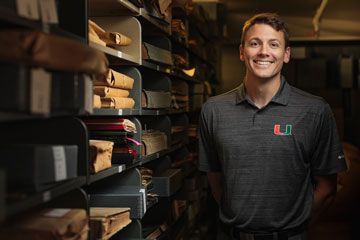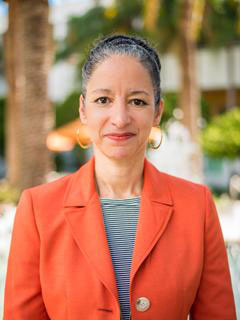The internet has revolutionized the world. Every facet of people’s lives has been touched by this technology—from work and entertainment to education, shopping, and personal relationships.
The network certainly has made many things easier. We can shop, study, and work from home. We can instantly communicate with anyone near or far. And we have a wealth of information at our fingertips.
But what has the internet taken from us? Has our attention span shortened? Do we spend any time doing nothing at all, or do we need to feel connected 24 hours a day?
Pamela Paul, editor of The New York Times Book Review, has published “100 Things We’ve Lost to the Internet.”
The book’s description notes: “In 100 glimpses of that pre-internet world, Paul presents a captivating record of the world before cyberspace—from voicemails to blind dates to punctuation to civility. There are the small losses: postcards, the blessings of an adolescence largely spared of documentation, the Rolodex, and the genuine surprises at high school reunions. But there are larger repercussions, too: weaker memories, the inability to entertain oneself, and the utter demolition of privacy.”
Members of the University of Miami community share their thoughts about the internet, not only indicating what society may have lost, but also what has been gained from this life-changing technology.
Dayton Whitman, sophomore majoring in theatre arts
What have we lost to the internet?
 “We have lost a sense of vulnerability and interpersonal skills. I have a friend who has a small brother who does not get off his iPad, and it is so hard to talk to him now. He cannot keep eye contact in a conversation, and he has no close friends. Now, the metaverse scares me because we have lost so much already that to have a fake community that is all online is terrifying. You don’t have to leave your house anymore to get entertainment and connect with people through phone or metaverse. We need human interaction. If we don’t have it, that’s unhealthy and toxic.”
“We have lost a sense of vulnerability and interpersonal skills. I have a friend who has a small brother who does not get off his iPad, and it is so hard to talk to him now. He cannot keep eye contact in a conversation, and he has no close friends. Now, the metaverse scares me because we have lost so much already that to have a fake community that is all online is terrifying. You don’t have to leave your house anymore to get entertainment and connect with people through phone or metaverse. We need human interaction. If we don’t have it, that’s unhealthy and toxic.”
What have we gained?
“We have gained a level of awareness. Growing up in America, I am born with a sense of ignorance. I do not understand what it is to grow up in a Third World country, but with social media and news, at least I am able to see what is going on. Everything is at my fingertips; so, I can research it. That is important because people who have gained awareness have started nonprofits or tried to start solutions to different problems. You cannot find solutions if you don’t know that there is a problem.”
Ilana Simmons, first-year student majoring in global health on the pre-med track
What have we lost to the internet?
 “We have lost the ability to form meaningful connections with people because using the internet is not like being face-to-face. You have to develop different skills, so I feel like the strength of personal relationships has been lost.”
“We have lost the ability to form meaningful connections with people because using the internet is not like being face-to-face. You have to develop different skills, so I feel like the strength of personal relationships has been lost.”
What have we gained?
“We have gained a better ability to stay in touch with people. So, for instance, I can stay in touch with friends who go to other colleges. Through the internet I stay in touch with them. It would be harder if there were no internet. It is easier to study with the internet. Although at times the system can crash.”
Jacob Li, a senior studying biomedical engineering
What have we lost to the internet?
 “Physical hard copy texts. A lot of the research I do for classes is online and not necessarily in the library. So, we don’t get a physical feel for the text and there is an underappreciation for the works of artists because when you put it on an online format you are not able to appreciate the time and effort that it took to put those pages together.”
“Physical hard copy texts. A lot of the research I do for classes is online and not necessarily in the library. So, we don’t get a physical feel for the text and there is an underappreciation for the works of artists because when you put it on an online format you are not able to appreciate the time and effort that it took to put those pages together.”
What have we gained?
“Accessibility. It is easier for people to find information. But it is a double-edged sword because the information we find may not always be credible. People think that the independent research they do is Googling but that is not really research. It may not be a credible source.”
Alexander Klein, sophomore majoring in exercise physiology
What have we lost to the internet?
 “As a society, we have lost a lot of communications skills. A lot of people find it easier to hide behind a screen because they can remain anonymous behind a pseudonym and hide their problems behind that screen.”
“As a society, we have lost a lot of communications skills. A lot of people find it easier to hide behind a screen because they can remain anonymous behind a pseudonym and hide their problems behind that screen.”
What have we gained?
“We have gained new ways to communicate. We have gained other ways to communicate with people who may be in another part of the country or the world. It may be someone you have never met before. It is easier to meet people that way.”
Nicholas Iwanicki, University Archivist, University of Miami Libraries
What have we lost to the internet?
 “One of the things that the internet has discouraged is the ability of audiences to physically interact with digitized objects. While it is easy to read a letter or view a photograph on a website, researchers do not get to have the full experience of touching and holding those materials. As the University archivist, one of the exciting parts of my job is enabling our students, faculty, staff, and the public to work with UM historic collections in person, providing a more enriching research experience. For many of our students, this is their first time getting to handle historic artifacts and documents, and it is fun to see them forge direct connections to past UM students.”
“One of the things that the internet has discouraged is the ability of audiences to physically interact with digitized objects. While it is easy to read a letter or view a photograph on a website, researchers do not get to have the full experience of touching and holding those materials. As the University archivist, one of the exciting parts of my job is enabling our students, faculty, staff, and the public to work with UM historic collections in person, providing a more enriching research experience. For many of our students, this is their first time getting to handle historic artifacts and documents, and it is fun to see them forge direct connections to past UM students.”
What have we gained from the internet?
“Perhaps the greatest gain from the internet is the access that researchers have to historic materials around the world. This is a massive advantage for scholars who cannot travel to use research collections or may access digitized resources from the field. Connecting audiences to digital content is vital for knowledge creation and discovery not just in academia, but for the general public as well.”
Laura Kohn-Wood, dean, School of Education and Human Development
What have we lost to the internet?
 “From my perspective, the internet has challenged personal and social interactions, particularly among young people for whom relationships have played out via devices for their entire life. COVID-19 only exacerbated this issue. I think that the rapid increase in anxiety among youth—in particular the nearly doubling of anxiety issues over the past decade among college students—is related to having lost fundamental peer socialization and physical intimacy skills, making the kinds of normal in-person interactions we take for granted, fraught with uncertainty. Further, we are currently observing multiple children using the internet as a vehicle to express anger, rage, or vindictiveness in the form of threats of violence.”
“From my perspective, the internet has challenged personal and social interactions, particularly among young people for whom relationships have played out via devices for their entire life. COVID-19 only exacerbated this issue. I think that the rapid increase in anxiety among youth—in particular the nearly doubling of anxiety issues over the past decade among college students—is related to having lost fundamental peer socialization and physical intimacy skills, making the kinds of normal in-person interactions we take for granted, fraught with uncertainty. Further, we are currently observing multiple children using the internet as a vehicle to express anger, rage, or vindictiveness in the form of threats of violence.”
What have we gained from the internet?
“As an educator (and an old, pre-world wide web person), the internet has dramatically changed our lives. With regard to education, the internet has given us the ability, within seconds, to access an almost infinite amount of information and knowledge. If knowledge is power, then all of us have become more powerful when we are able to access the array of intellectual resources, references, information, and science.
Of course, the danger of this democratizing of knowledge is the lack of curated information and the proliferation of misinformation, myths, and lies. Therefore, the need for internet literacy in the broader area of media literacy is critical, particularly for children to develop the skills to navigate their information-saturated world.
“The other aspect of increased knowledge access for educators, particularly in higher education is the premium that should be placed on innovative pedagogy and learning sciences. If people can use a search engine to quickly find the answer to a question on their smartphone, more of their time in the classroom should be spent engaging with information more intensively and more tangibly. The learning curve is steepest when one attempts to apply knowledge to relevant areas, incorporate information, synthesize and creatively problem solve. Pedagogical approaches like discussion or problem-based learning, service learning, and active engagement can reinforce and deepen the integration of new knowledge to advance student comprehension and competency.”
Antonio Mora, visiting assistant professor of practice, School of Communication
What have we gained from the internet?
 “The internet transformed the way we work, the way we consume entertainment, the way we connect with other people, and the way we get informed. As a journalist, the unlimited access to information has been a godsend. The internet has also allowed far greater diversity of opinion, with national news no longer controlled by a small number of news organizations. I also love the interconnectivity that social media provides, allowing us to easily stay in touch with friends.”
“The internet transformed the way we work, the way we consume entertainment, the way we connect with other people, and the way we get informed. As a journalist, the unlimited access to information has been a godsend. The internet has also allowed far greater diversity of opinion, with national news no longer controlled by a small number of news organizations. I also love the interconnectivity that social media provides, allowing us to easily stay in touch with friends.”
What has the internet taken from us?
“As often happens with great innovations, the internet has brought with it all sorts of negative consequences. Social media has coarsened the political dialogue, contributing greatly to the extreme political polarization we have in the U.S. The ‘democratization’ of news, where anyone now has access to an online ‘megaphone,’ has increased fake news and the propagation of conspiracy theories. On a more individual level, the internet and our mobile devices have allowed people to recede into their cocoons and reduced in-person interactions. I also worry that people are reading less.”

